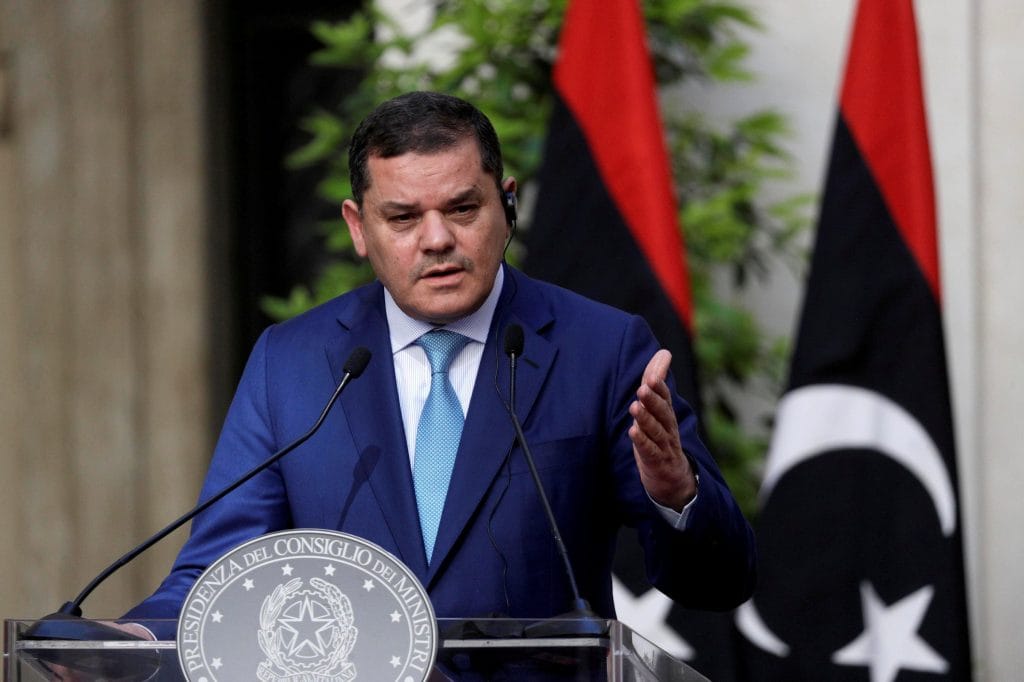Prime Minister Abdul Hamid Dbeibeh has unveiled plans to launch a wide-ranging political initiative in a bid to resolve Libya’s years-long institutional deadlock, vowing to restructure his government, improve public engagement, and secure conditions for credible national elections.
Speaking at a Cabinet meeting in Tripoli on Tuesday, Dbeibeh said the initiative—expected to be formally introduced in the coming days—would rest on three distinct pillars aimed at realigning the country’s fractured political environment and reinforcing the state’s authority.
Merit-Based Government Reform
At the heart of Dbeibeh’s proposed initiative is a sweeping restructuring of the Government of National Unity (GNU). He emphasized that the changes will be guided strictly by merit and qualifications, not by political bargaining or factional power-sharing.
“We will rebuild the government from the ground up, selecting individuals based on expertise and effectiveness,” Dbeibeh declared. “There will be no space for quotas or parallel influence. The country can no longer afford a governance structure shaped by compromise rather than competence.”
Libya has long suffered from fragmented governance, with ministerial positions often filled through political deals that prioritize appeasing rival camps over delivering services. Dbeibeh’s commitment to dismantling this practice signals an effort to professionalize state institutions and break away from patronage-driven politics.
Public Participation Through a Digital Platform
The second track of the plan involves a significant step toward transparency and citizen participation. Dbeibeh said his administration will launch a national digital platform designed to reflect public opinion and provide Libyans with a direct channel to interact with the government.
“The people must have the tools to hold their government accountable,” he said. “Through this platform, citizens will be able to submit questions, monitor decisions, and offer feedback. This is about giving power back to the people and making governance more accessible.”
The platform aims to build trust in state institutions and bridge the gap between citizens and decision-makers—a gap that has widened amid repeated delays in elections and the proliferation of armed groups operating outside state control.
Securing Elections and Ending Rival Governments
The third component focuses on the establishment of a robust and practical security arrangement that will allow for the safe conduct of national elections. This comes in response to repeated postponements of long-awaited presidential and parliamentary votes due to disagreements over legal frameworks and security concerns.
“Our objective is to create a comprehensive mechanism that guarantees the safety and credibility of the elections,” Dbeibeh said. “Only through legitimate, inclusive elections can we remove the justification for any competing government.”
Currently, Libya remains split between two rival administrations. Dbeibeh leads the internationally recognized government in the west, while the east and much of the south are controlled by a parallel authority backed by the House of Representatives in Tobruk. That administration, led by Osama Hammad and based in Benghazi, was appointed in early 2022, deepening the political divide.
The United Nations has continued to push for reconciliation, hosting dialogues and proposing roadmaps to unify governance. However, those efforts have repeatedly stalled, with both camps accusing each other of undermining progress.
Addressing Security Concerns in Tripoli
In his address, Dbeibeh also responded to recent violence in the capital, where armed clashes erupted between government forces and unidentified militias, sparking widespread concern and protests over safety.
He described the incident as a “targeted and disciplined security operation” against an outlawed group, which, according to him, was carried out with precision and minimal casualties.
“The international community has recognized this operation as a serious and necessary move to restore order in Tripoli,” he said. “It marks a new phase in asserting full state control over the capital, with no more concessions to parallel forces or militia groups.”
The use of militias and the presence of fragmented security forces have long plagued Libya’s stability. Successive governments have struggled to integrate these groups into national frameworks or disband them entirely. Dbeibeh’s remarks signal a renewed effort to address this challenge head-on.
Silence from the East
As of Tuesday evening, there was no official response from the eastern-based parliament regarding Dbeibeh’s statements or the proposed initiative. The silence underscores the enduring tensions between the two rival centers of power, both of which claim legitimacy.
Observers now await further details on how Dbeibeh’s initiative will be implemented and whether it can gain traction in a country where past peace efforts have frequently collapsed under pressure from competing interests and external interference.
Still, the announcement marks one of the most comprehensive reform proposals from the Tripoli-based government in recent years. If successful, it could pave the way for national reconciliation, a unified administration, and the long-awaited return to democratic governance.



